He is among the most beloved actors of his generation, hailed as every man, one of us. Some have called him this eras James Stewart, but I think Tom Hanks is a greater actor than Stewart was, and an original to boot. One of the many actors to emerge out of television, his big break was in a Ron Howard comedy entitled Splash (1984), and he seemed to have a strong career ahead of him as a comedic actor. Earning an Academy Award nomination for his wonderful performance in Big (1988) it seemed his career path was carved out for him. But then he gave an edgy performance as a stand up comic in Punchline (1988) which startled critics into watching him closer and suddenly Tom Hanks was something very much more than a mere light comedic actor.
Brian De Palma cast him in his adaptation of the best seller The Bonfire of the Vanities (1990) and just by being cast in the film it seemed he was ready for the big leagues. But then the film crashed and burned, badly, and Hanks was left in the wind, the failure of the film set upon his shoulders. It was said he was woefully miscast, that he did not have the stuff for the part, he was unfairly attacked for what was De Palmas failure. Lying low he bided his time and took a comedic part, with dramatic leanings in the wonderful nostalgic baseball film A League of Their Own (1992), for which he should have been nominated for supporting actor for his work as Jimmy Duggan, the drunken ex-baseball star forced to coach women. It was a solid reminder of his gifts as an actor and Jonathan Demme promptly cast him in the role of a lifetime (or so he thought) as an AIDS afflicted lawyer who sues his firm for firing him.
That gave him Oscar number one. Hanks was superb as Andrew, a hotshot on the rise in his firm who is gay, something his partners do not know, and dying of AIDS. When fired he sues, hiring an ambulance chasing lawyer beautifully portrayed by Denzel Washington, a homophobic family man who comes to love Andrew as a brother. Hanks won the Oscar but Washington should have at least been nominated.
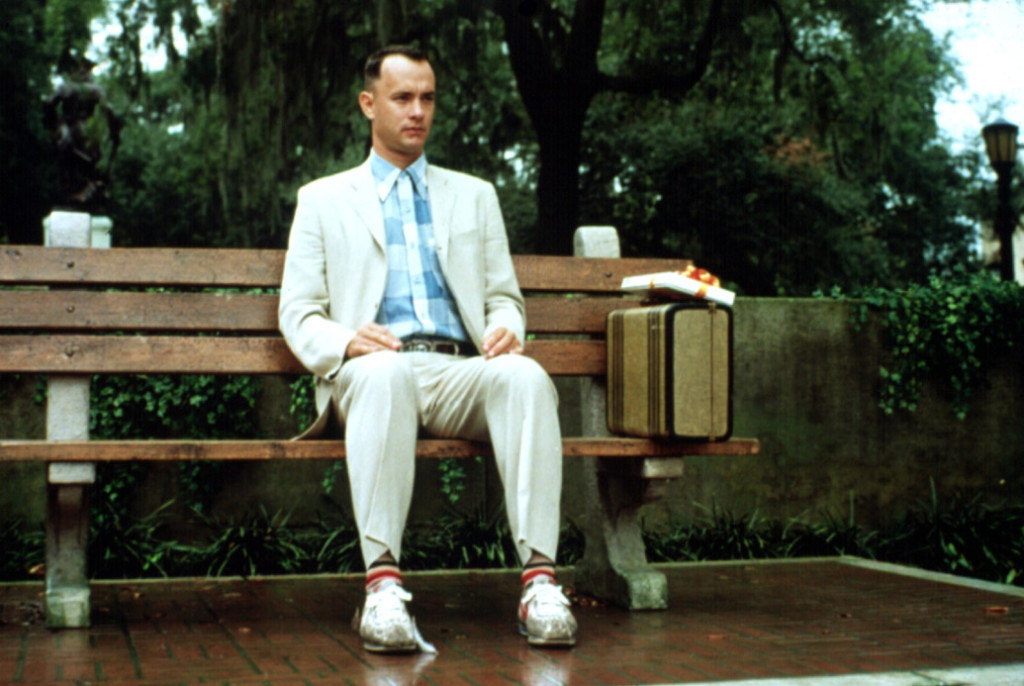
Incredibly one year layer he was again standing in the same stage holding a second Academy Award this time for his brilliant performance in Forrest Gump (1994) a massive hit with audiences and critics. Hanks was astounding as Gump, an idiot savant blessed with the uncanny ability of being in the right place at the right time and consistently being a part of history. The entire history of American pop culture is told through his life, which sees him go to Viet Nam, become war hero, a ping-pong champion, he meets several US Presidents, John Lennon, and becomes a multi-millionaire with his friend Lt. Dan (Gary Sinise) through their shrimping enterprise, Bubbu Gump shrimp. To gain insight into how tremendous a performance he gives, try and do that sing-song delivery he used in the film, or better yet watch the special features on the DVD and see how it evolved. His work in Forrest Gump (1994) is a tremendous piece of acting, and well deserving of that second Oscar. With that win he became the first leading actor to win back to back Oscars since 1938.
In the years to follow he continued with an array of excellent performances Oscar caliber work as James Lovell in the brilliant Apollo 13 (1995), a solid love story with You ve Got Mail (1998), and his haunting performance as Miller in Saving Private Ryan (1998) for director Steven Spielberg. Amidst the chaos of combat in the war epic, Hanks grounds the film with the face of war. His greatest scene in the film is the one in which he goes off by himself over the hill after the death of the little medic and breaks down, the weight of the war of his command finally tearing into his soul, and he weeps from the pit of his soul a cry of the anguished. His tears are as a man who has seen too much death, who worries he cannot go home after what he has seen, that he can never connect to society again. For his performance he was again nominated for an Oscar, deservedly so.
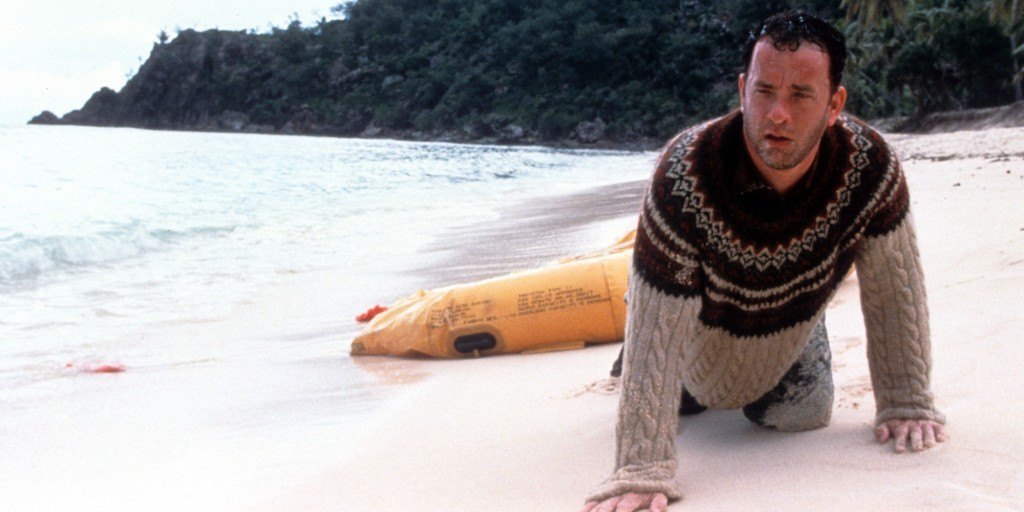
For his next film he gave not only his greatest performance but one of the best ever put on film. Cast Away (2000) offered Hanks a chance to dominate the screen, in a story that was a modern-day Robinson Crusoe. As a Federal Express hot-shot, a man to whom time means everything, his plane goes down in the Pacific stranding him on a small island for four years. Learning to survive, beating the elements, becoming increasingly resourceful and finally escaping, he returns to society a changed man, his fiancé having married another thinking him dead, everything he knew has changed. It is a stunning performance and Hanks became the front-runner for the Oscar which have been his third, something no other actor had ever accomplished. He won the prestigious New York Film Critics Award for Best Actor, and the Golden Globe, but lost the Oscar to Russell Crowe in Gladiator (2000) who should have won the year previous. The performance remains a knockout, easily the finest of his career.
For the next decade Hanks went not nominated for a single Oscar, though he should have been a few times. He was darkly brilliant in Road to Perdition (2002) cast against type as a mafia hitman during the Depression for the Irish mob. As the surrogate son of mob chief Paul Newman he was a loyal soldier who dispatched murder like an ordinary job. When betrayed by Newmans real son, he is forced to flee and go against his allies, hitting the road with his son after the rest of his family is massacred. It was a departure for Hanks and he rose to the challenge with a quietly powerful portrayal of a man who chose this profession out of necessity, because he needed to provide. The film was well received by critics, but did not perform at the box office as hoped. Perhaps audiences were not ready to see Hanks in this sort of role, good or not.
That same year he again worked with Steven Spielberg this time in a supporting role in Catch Me If You Can (2002) a showcase for the gifts of Leonardo Di Caprio, with Hanks cast as the FBI agent in pursuit if the young fraud artist. Bewildered by the genius of the young man, he cannot quite believe he is being bested by a teenager, Hanks is terrific, eventually taking on the role himself as a surrogate farther to the lad.
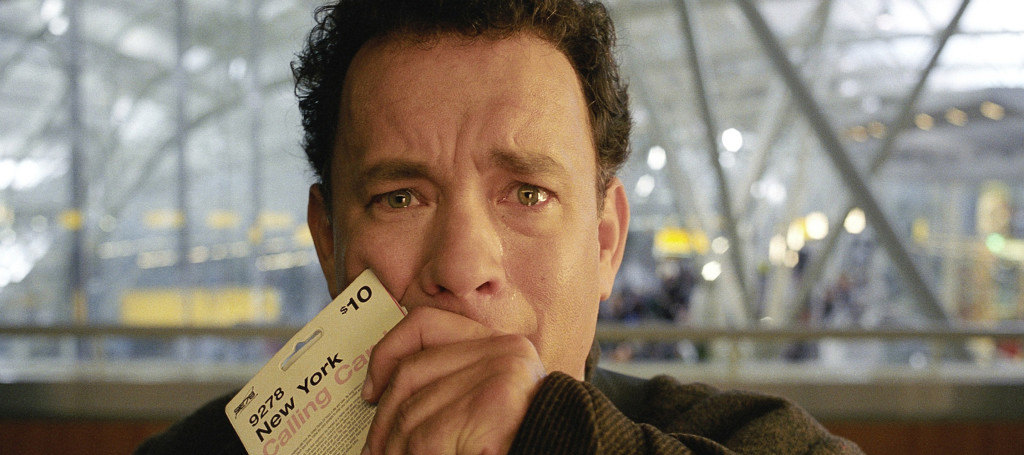
In 2004, he and Spielberg teamed up for one of Hanks best performances in a curious film no one seemed to get. Comedy and drama are merged beautifully in The Terminal (2004) and Hanks gives a performance that suggested echoes of Chaplin in its physicality and raw beauty. As a man coming to New York from somewhere in Russia, he is horrified to learn that there has been a coup in his country and no government reigns, leaving him without a country. Stranded in the airport, unable to leave, he spends weeks in the place, finding work, building himself a space to live, all the while angering the nasty chief of the airport who throws up roadblock after roadblock to get in his way hoping he will fail. But he charms everyone he meets, becomes their friend, and eventually tells his story as to why he is New York, and plans to go directly home when he has a home. Using an accent for the first time, it sounded strange at first to hear him speak in an accent of any kind, though it grows on you very quickly and before long we are no longer watching Tom Hanks. Just a marvelous piece of acting !
The Da Vinci Code (2006) was a big hit along with its sequel, but did little for Hanks as an actor, and while he was very good in Charlie Wilsons War (2007) again it did not advance him as an actor. In 2013 he hit two films out of the park with stunning performances, that were each a reminder of his substantial gifts as an actor. As Walt Disney in Saving Mr. Banks (2013) he was outstanding in a supporting role, conveying the genius of the man who created Mickey Mouse and Disneyland while trying to convince a writer to trust him with her project and let him make Mary Poppins (1964).
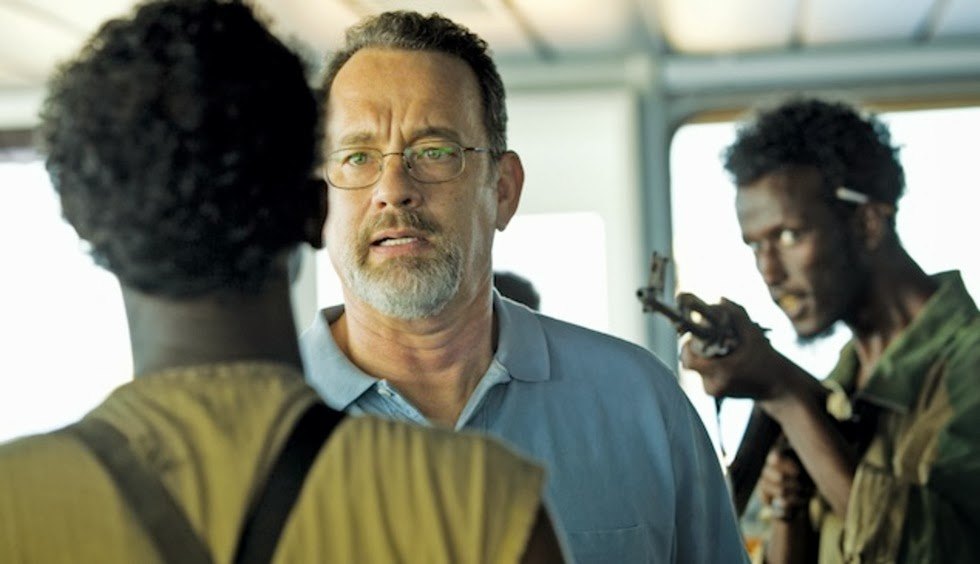
However it was as Captain Phillips (2013) that he really brought back the Hanks magic of drama, portraying the real life Captain of cargo ship hijacked by pirates. Hanks was superb as the strong,m stoic yet terrified and terrorized captain, never knowing if he was going to be killed or not. His final sequence in the medical room after the incident has ended shows a man who has gone through trauma to the extreme and cannot quite comprehend what has happened to him. It was a superb performance that seemed to make him a major contender for a Best Actor nomination….which did not happen. When the nominations were announced, incredibly Hanks was left off the list of the final five. Granted it was a good year, however he should have been there, no question.
One of the few actors to move easily between comedy and drama, with a knack for romantic comedy some do not have, see Sleepless in Seattle (1993) or You ve Got Mail (1998) and understand what I mean, Hanks walks the line between being a major acting talent and major movie star. And did I mention he is a really nice guy…one who has it all and has a strong legacy to be very proud of.
1. Cast Away (2000): One of the greatest performances ever put on film, for more than two hours Hanks dominates this modern day Robinson Crusoe tale of a man obsessed with time attempting to survive after his plane goes down leaving him on a small island in the middle of the Pacific. He won the New York Film Critics Award for Best Actor, and the Golden Globe, but somehow, incredibly, lost that Oscar, which would have been his third. He owns the screen…and that cut from the tooth extraction to primal man…startling and so right.
2. Forrest Gump (1994): Listen to his delivery, that gentle sing-song cadence, and watch the body language, ever watchful, trying to do what is right, or what he perceives to be right. You cannot imagine another actor in the role, Hanks is breathtaking as Forrest, and after the film you realize the staggering impact of his work when you can think of little else. Just a lovely performance, so original and perfect.
3. Philadelphia (1993): As a young lawyer stricken with AIDS and fired for being gay, Hanks punched through and became a major dramatic actor. Heartbreaking, yet also haunting in the performance, he won his first Oscar for this. That opera scene still draws a tear from me.
4. Saving Private Ryan (1998): Word has it Hanks asked Spielberg to take away dialogue and allow him to feel what he was supposed to say. Watch him after the death of the little medic, when he goes off to weep…that is the face of war. He is simply astounding in the film, bringing a gentle humanity to the chaos and madness of combat.
5. Road to Perdition (2002): Cast against type as a killer. a hit man for the Irtish mob during the Depression this might be his most under appreciated performance. Steely eyed, relentless and ice-cold, he is terrific. A superb under appreciated masterpiece with Hanks giving one of his finest performances.
6. Captain Phillips (2013): Intense throughout, Hanks is brilliant, but his final scenes in the medical unit as astounding as the overwhelming shock of what he has endured tears through his body and mind, and he manages to convey that horror to us. How was he not nominated for this ?
7. Big (1988): Capturing the wide-eyed innocence of youth, Hanks is brilliant as a man-child, a twelve-year boy suddenly transformed into an adult trying to get back to his childhood. The look on his face exiting the elevator after his first night of sex is priceless.
8. The Terminal (1994): Daring in that he takes on an accent, Chaplin-esque in that it is his finest physical performance, he is sweet and simply superb in this film, which did not get a fair shake at the box office.
9. Apollo 13 (1995): As brave, stoic yet utterly human astronaut Jim Lovell, Hanks anchors Ron Howard’s best film with a subtle yet powerful performance as a man who wants to set foot on the moon, comes so close, only to fight for his life to get home. Again a nomination should have come.
10. A League Of Their Own (1992): There s no crying in baseball roars Jimmy Duggan to one of his player after he berates them, but this is the same man who will hold one of his players when she informed her husband is dead overseas. Both funny and deeply moving, this was the first time he really displayed his range.
Read More: Best Tom Hanks Movies

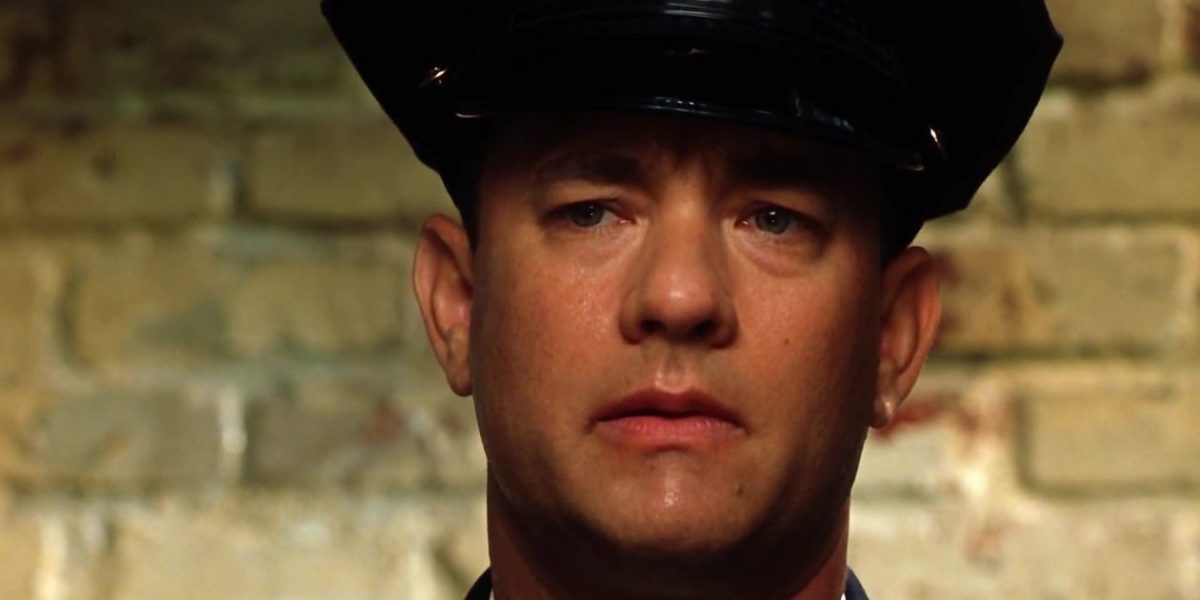
You must be logged in to post a comment.